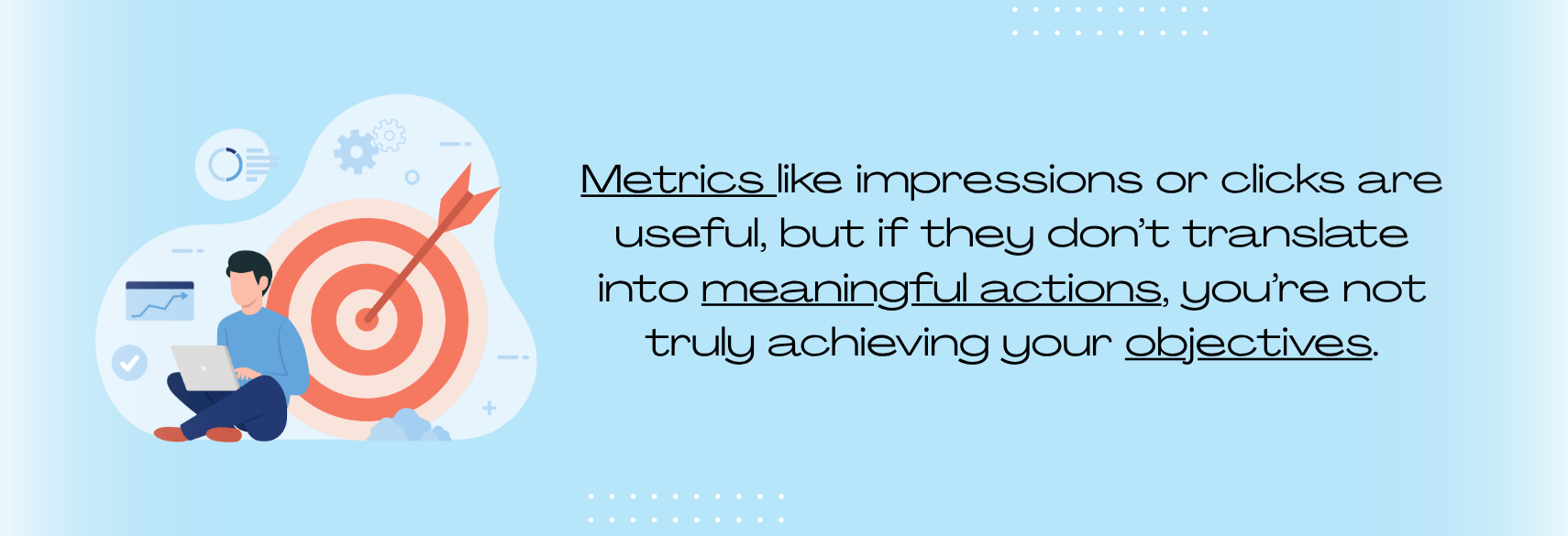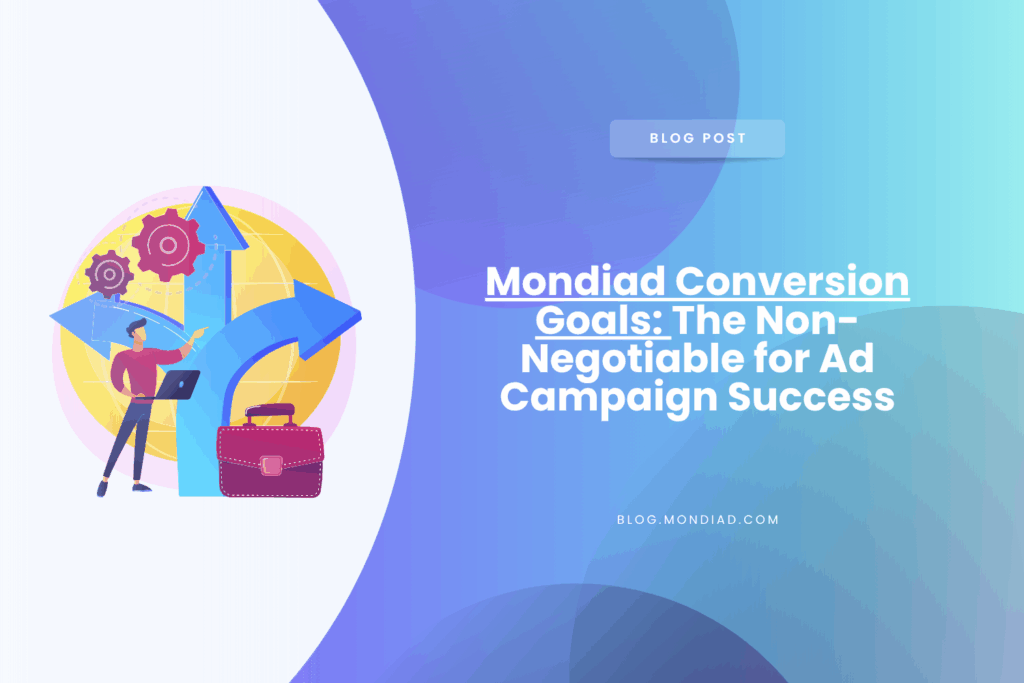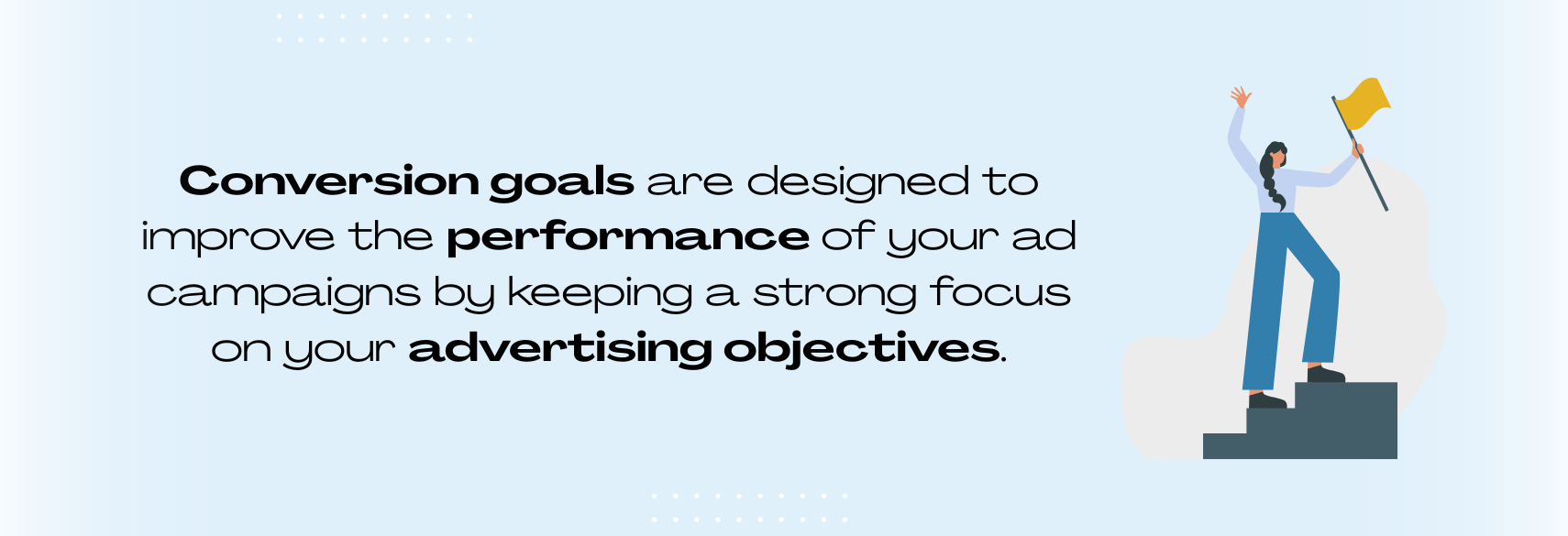Running an ad campaign without setting clear conversion goals is like going on a road trip without a map, you might enjoy the ride, but you’ll have no idea if you’re getting closer to your destination.

In the world of performance marketing, conversion goals (also called actions or desired outcomes) are the metrics that define success. Whether you want users to make a purchase, fill out a form, subscribe to a newsletter, or download an app, your ad campaign should be built around driving those specific actions.
Conversion goals are designed to improve the performance of your ad campaigns by keeping a strong focus on your advertising objectives.
“Imagine you put up a lemonade stand. You run flyers around the neighborhood. Your conversion goal? Getting someone to walk over and buy a cup. Every sale is a conversion.”
Your goals must be clear and measurable to identify how well your ad visitors convert and make adjustments as needed.
Why are conversion goals so important?
1. They Define What Success Looks Like
Every campaign needs a purpose. Are you trying to generate leads? Drive app installs? Sell a product? The answer to this question determines your conversion goal.
| Subscription | This conversion is triggered when users sign up to receive newsletters, updates, or access premium content. |
| Lead | This conversion is triggered when the ad viewer is showing interest in the ad by requesting a quote, or signing up for a free trial, for example. |
| Purchase | This conversion is triggered when users buy a product, subscribe to a paid service, or complete a transaction. |
| Website interaction | This conversion is triggered when users click on specific elements, view multiple pages, or spend a certain amount of time on the site. |
| Form submission | This conversion is triggered when users provide their contact information through a form on the advertiser’s site. |
| App Install | This conversion is triggered when users install an app after clicking on an ad. |
| Other | If you don’t want to track anyone of the above options, just select this conversion type. |
Without a defined conversion goal, you’re left guessing whether your campaign is performing well. Metrics like impressions or clicks are useful, but if they don’t translate into meaningful actions, you’re not truly achieving your objectives.
2. They Help You Measure ROI Accurately
They simplify your conversion management. Marketers are constantly under pressure to prove the value of their campaigns. Conversion goals make it possible to measure return on investment (ROI) with clarity.

By assigning value to each conversion (e.g., $10 per lead), you can calculate how much revenue your campaign generates versus how much you spend. This data-driven approach allows you to scale what works and cut what doesn’t.
3. They Guide Your Optimization
More data = better optimisations = better ROI. When your campaign is optimized for a clear action, you can make smarter decisions about:
- Which creatives perform best
- Which audiences convert more
- Which placements and devices are most effective
- What time of day drives the most actions
Having a conversion goal lets you analyze performance based on actual business outcomes, rather than surface-level engagement.
Who Needs Mondiad Conversion Goals Like Water?
While all advertisers benefit from setting conversion goals, some verticals absolutely depend on it to succeed. Here’s a breakdown of which verticals must use conversion tracking/goals and why:
Scenario: Betting Platform Launching in a New Market
- Objective: Gain new users in a geo where betting just became legal.
- Conversion Goal: Track first-time deposits.
- Why it matters: Registering is not enough. You need users to deposit and play—so optimizing toward those events improves ROI and reduces fraud.
So, you see… If your vertical involves monetizing user actions, then setting up and optimizing for conversion goals is non-negotiable. It’s the difference between guessing and growing.
Time to Power Up!
Set up Mondiad conversion goals in just a few minutes!
Whether you’re an affiliate marketer, e-commerce brand, or app developer, defining what success looks like ensures that your campaigns are accountable, measurable, and optimized for growth.
So before launching your next campaign, ask yourself: What action do I want users to take? That answer should drive everything else.


